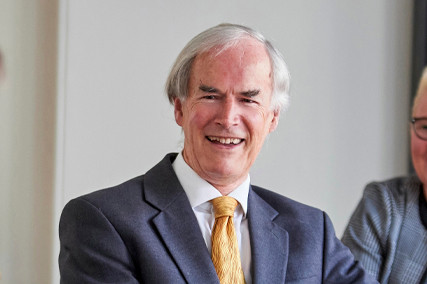- The First Tier (‘FT’) and Upper Tribunal (‘UT’) have recently been active in the highly contested area of the definition of ‘public authority’ in the Environmental Information Regulations 2004 (‘EIR 2004’), which transpose Directive 2003/4/EC on public access to environmental information (‘Directive’). The recent UT decision in Heathrow Airports Ltd (‘HAL’) provides useful clarification of the trend of decisions but leaves some issues for resolution by the higher appellate courts.
- Access to information about entities whose activities affect the environment is, of course, both a fundamental requirement for anyone who seeks to protect and enhance the environment and a potential problem for utilities companies, who carry out functions which might otherwise be undertaken by local and central governmental bodies. The area therefore calls for some rigorous analysis of the authorities. A fuller analysis of the authorities before Heathrow UT is available in our article in the JPEL February 2021 issue.
- As is well known there are four categories of bodies subject to the EIR. The first and second (EIR 2004 reg.2(2)(a) and (b) (corresponding to the Directive Article 2(2)(a)) are relatively straightforward. They are the classic instances of public bodies: (a) “Government departments”; and (b) “any other public authority” as defined, such as local authorities. The controversial ones are EIR 2004 reg.2(2) (c) bodies (which corresponds to Directive Article 2(2)(b)) that ‘carry out functions of public administration’, and EIR 2004 reg.2(2)(d) bodies (corresponding to Directive Article 2(2) (c)) which have, or provide, ‘responsibilities….functions…. or … services relating to the environment… under the control’ of EIR 2004 reg.2(2)(a)-(c) bodies.
- The decision of the Grand Chamber of the Luxembourg CJEU C-279/12 Fish Legal and Emily Shirley v United Utilities, Southern Water, Information Commissioner & SSEFRA [2014] QB 521 remains, despite Brexit, the binding foundation of the relevant domestic law.
- There remains considerable scope for debate about the proper interpretation of it. We set out in the JPEL article in greater detail an approach consistent with underlying objectives, scheme and wording of the Regulations and Directive.
- The Upper Tribunal not surprisingly decided in Cross v Information Commissioner & The Cabinet Office [2016] UKUT 0153 (AAC) that the Royal Household’s Social Responsibility Committee was not a public authority. This decision has been widely interpreted by many as formulating a “Quadruple Test” for Article 2(2) (b)/reg.2(2)(c) bodies. There must be (i) entrustment under national law of the relevant body with services of public interest; (ii) some of which must relate to the environment (a widespread misinterpretation–see below); (iii) special legal powers which need not relate to the environmental services and (iv) a cross check with the underlying objectives and purposes of the Directive and Regulations.
- The UT in Heathrow Airports Ltd (‘HAL’) adopted the uncontroversial approach that pre-Brexit case law (ie including CJEU decisions) remained binding. It accepted that HAL had ‘special powers’ of compulsory acquisition and bye law making. It noted that it was the existence rather than the frequency of use of such powers that matters. It considered that HAL’s wide powers in relation to noise and emissions meant that it was performing an environmental service. It nonetheless overturned the FTT decision that HAL was a public authority. This was on the basis that it had not been ‘entrusted’ with the performance of public services. The provision of crucial transport infrastructure even by the sole national ‘hub’ airport did not involve an effective monopoly and should be distinguished from the provision of services such as those of gas, electricity, water supply and sewerage.
- Three issues that arise in relation to reg.2(2)(c) and (d) bodies are now discussed.
- First Issue: the supposed requirement that some of the services of reg.2(2)(c) bodies must relate to the environment is misconceived. It is based on a misinterpretation of the UT decision in Cross. The Upper Tribunal itself in Cross accepted at [113] that its interpretation of Article 2(2)(b) might not apply to the EIR 2004, as reg.2(2)(c) does not include the last eleven ambiguous words of Directive Article 2(2)(b):
“any natural or legal person performing public administrative functions under national law, including specific duties, activities or services in relation to the environment”.
The supposed requirement that some of the services must relate to the environment is inconsistent with the principle of construction expressio unius exclusio alterius (ie that where one part of a sequence expressly includes particular wording then that wording cannot be implied into other parts of that sequence). The presence of the thrice repeated express requirement under reg.2(2)(d) that services should be “relating to the environment” indicates that the absence of any such requirement in reg.2(2)(c) is intended to be substantively significant.
Even if it were a requirement of the Directive that services performed as part of public administrative functions must relate to the environment, there is no reason why domestic regulations should not have wider scope than the Directive. The Treaty on the Functioning of the European Union provides at Article 193 that there is no bar on member states providing higher levels of environmental protection in domestic legislation than required by EU action. Thus the position is in marked contrast to that in Ofcom v ICO [2010] UKSC 3 at [3] where there were no indications of an intention other than to follow exactly the Directive.
The Grand Chamber appears, in any event, to endorse (as the last of 3 points made at [48-50]) the statement in the (non-binding) Aarhus Convention Guide that there is no such requirement. Such a requirement is certainly no part of Ruling One of the Grand Chamber.
10. Second Issue: in relation to reg.2(2)(d) bodies the domestic Upper Tribunal in Fish Legal failed to appreciate that there can be freedom in ordinary day to day decision making but nonetheless control in the sense of subjection to potentially decisive influence by others regardless of the extent in practice of direct exercise of such powers. The different words of the Grand Chamber in Fish Legal are, however, still for the moment binding. The domestic Tribunal appears to have ignored the use of the auxiliary ‘may’ in [68-69] and the final important words of Ruling 2 which required it to ask whether an [Article 2 (2)(a) or (b)] public authority
‘… is in a position to exert decisive influence on their actions in the environmental field’ (our emphasis)
It is the potential to exert decisive influence which was critical for the Grand Chamber—not the extent to which it is in practice openly or indirectly exercised.
11. Third Issue: There remains scope for argument at a higher level than the UT of whether the separate requirement of ‘entrustment’ is a judicial misinterpretation of the EIR 2004. It is arguable that ‘special powers’ cannot sensibly be granted by the state without an implicit prior decision that the powers are needed to facilitate the achievement of a public purpose. If so it may well be that a grant necessarily implies ‘entrustment’ of the achievement of some part of that public purpose to the grantee even in the absence of any express legislative or other provision. It may well not be necessary for a service to be an effective monopoly for it to be one which has been entrusted to the grantee (Pace HAL in the UT). It might indeed, of course, be said that the operation of the sole national hub airport is an effective monopoly.
12. It may well be more fruitful in considering whether a putative reg. 2(2)(c) body is performing a public administrative function, rather than requiring as a separate test ‘entrustment’ of such a function, to ask whether such a body (i) is susceptible to judicial review and/or (ii) provides a service which both is needed in a contemporary society and can only be provided effectively at an adequate level if state powers are available to providers and to treat an affirmative answer as a positive indicator.
13. Finally, attention is drawn (1) to the recent entry in this blog by Richard Honey QC which concerns the status of retained EU law and the ability of domestic courts to depart in certain circumstances. It will be interesting to see what attempts are made to depart from the relevant EU law and with what success and (2) to the fuller discussion of many of the above issues in our article in the February 2021 issue of the Journal of Planning and Environmental Law.
Robert McCracken KC is barrister at Francis Taylor Building and a past Chairman of the UK Environmental Law Association. He has appeared in many of the leading environmental law cases, including Fish Legal, in the highest courts of the United Kingdom, the Commonwealth and the European Union. He is co-author of “Statutory Nuisance” (Bloomsbury 4th edition 2019).
Meyric Lewis KC is a barrister at Francis Taylor Building and practices in all aspects of environmental and planning law. He was junior counsel in Fish Legal and recently succeeded in the first ever JR claim under the Bathing Water Regulations 2013, Anglian Water v Environment Agency [2020] EWHC 3544 (Admin).









